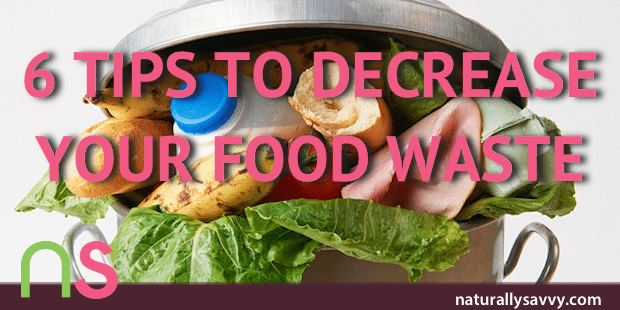
It's astonishing to think about: more than 40 percent of the food the world produces never gets eaten, while billions of people continue to face food scarcity issues. How can this be? How can so much edible food end up in landfills?
The ongoing food waste crisis doesn't just impact the world's hungriest, either. We pay for it in higher food costs because retailers and manufacturers have to account for their losses. They do this by charging the customer a higher price.
And there's an environmental impact, too. Producing food uses a lot of resources-from water and land to the pesticides that are causing human health as well as environmental issues. There's the packaging component, which is taxing on the planet, and of course, there's all those carbon emissions from trucking (or flying or shipping!) all that food. Then, if uneaten, the whole production trail is not only wasted resources and effort, but left to rot in a landfill…boo.
Read more about the health benefits of eating the stems, skins, and tops of vegetables
So, while the food waste issue is not going to self-correct overnight, or even in our lifetime, taking our own food consumption seriously is an excellent way to decrease our impact in this wasteful cycle. Every bit helps. Here are six steps you can take to decrease your food waste.
1. Shop more often: When you head on down to Costco or another bulk store where you think you're "getting a deal," you may find you're actually just wasting your money, especially if you buy perishable items. Adopt the French mentality of buying fresh food more often-even daily. Not only are you getting fresher fare, but the less you buy at once, the less you're likely to waste.
2. Keep an inventory: It may seem a little anal retentive, but keeping a list on your refrigerator door of what you have that's perishable (dairy, meats, produce) can be a great way to mitigate food loss. You may think those gorgeous strawberries are too memorable to forget, but by mid-week you may totally overlook what you bought on Sunday. Keep a list and check it off as you go. This can also help you create your future shopping list.
3. Freeze, dry or can: So the strawberries passed their prime…they're still edible, but maybe not just as the star of the plate. Why not freeze them for adding to a smoothie? Or, puree them up with some apples and dehydrate for homemade fruit leather. If you're a home canner, turn them into a batch of strawberry jam and you'll prevent those yummy berries from being food waste victims.
4. Pre-cook: A lot of our wasted food at home comes from being too tired after a long day at work to prepare something from scratch. We turn to pizza or frozen food and let that broccoli turn yellow. It can be really helpful to lightly steam your veggies once you get them and store them in clear glass jars (so you can see them!). Then, you've got less cooking time and a lot of versatility with your pre-cooked veg. Drop the broccoli into a stir-fry, stew or soup, or simply reheat and serve as a side.
5. Change your light bulbs: LED light bulbs, which are better for the environment, can also decrease food waste. Conventional light bulbs (which are probably in your refrigerator right now) can cause food to "sweat" inside the packaging and that means it can spoil quicker.
6. Compost: In the event that your food does spoil, turn it into more food by composting proper food items and using your compost in your garden. If you don't have a garden, check around your city for places that pick up or accept kitchen compost and it can go to help produce food for local communities or school gardens.
Read more about using food scraps to help a garden thrive
Keep in touch with Jill on Twitter @jillettinger
Image via U.S. Department of Agriculture




